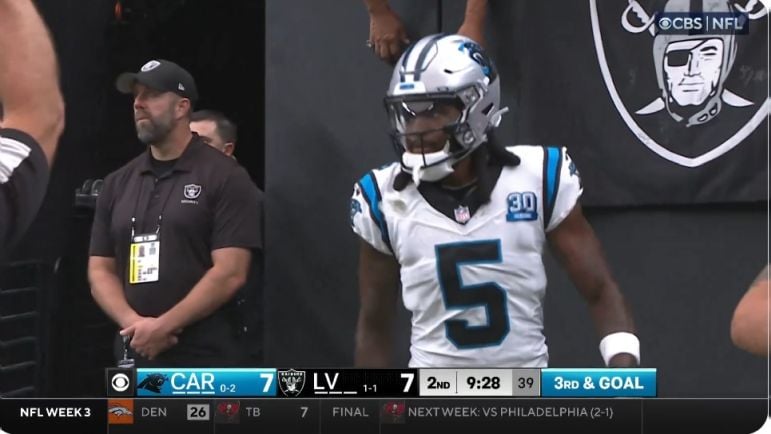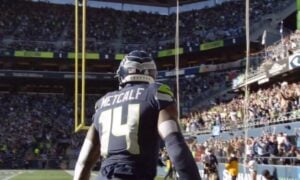After trading WR Diontae Johnson to the Carolina Panthers, the Pittsburgh Steelers created a hole at wide receiver. It’s still a need four games into the 2024 season, and the big brain move might feel like bringing Johnson back to the Steelers before the 2024 deadline. On some level, it makes sense. The Panthers aren’t playoff contenders and will likely sell at the trade deadline. Johnson is in the final year of his contract and would be cheap for Pittsburgh to reacquire. He knows the team and if something goes wrong, should he become a locker room issue, the Steelers could cut bait without any serious consequence.
Turns out, the NFL is one step ahead. Rules put in place by the league don’t allow players to be immediately traded back to their original team. NFL Network Ian Rapoport uncovered the little-known rule Monday afternoon as it relates to New York Jets EDGE Hasson Reddick. Acquired via trade from the Philadelphia Eagles in April, Reddick’s yet to pay for the Jets due to a contract impasse. Rapoport points out the Jets can’t just send him back to the Eagles and reset the trade.
Rapoport then shared the specific rules that apply towards players acquiring previously traded players. Essentially, there are rules that limit how a player can return to their original club for the first two seasons after being traded.
Here are the full NFL rules on trades and players being re-acquired. https://t.co/8MF8IaudEG pic.twitter.com/eXboevtY8n
— Ian Rapoport (@RapSheet) September 30, 2024
For Johnson, exceptions ‘B and ‘C’ don’t apply. Johnson just played his fourth game for the Panthers, as Carolina’s offense has shown new life under QB Andy Dalton. Over the past two games, Johnson has caught 15 passes for 205 yards and 2 touchdowns with Dalton in the lineup.
The ‘C’ exception relates to a failed physical, a player being acquired but going back because of a medical issue. That’s rare but has happened around the league. For example, in 2022, TE Adam Shaheen was traded from the Miami Dolphins to the Houston Texans but reverted back after Dolphins’ doctors flagged him for knee issue. Obviously, that’s not applying to Johnson, who was sent to Carolina in March.
The first exception allows a player to circle back after four games, but it appears to only be through a free agent signing or waiver claim, not a trade. This recently occurred with QB Josh Dobbs. Pittsburgh traded to him to Jacksonville in Sept. 2019 and then claimed him off waivers in September 2020. That is legal but it appears that per NFL rules, they couldn’t have traded back for him for two seasons.
So unless Johnson is outright released (a vested veteran, he wouldn’t be subject to waivers), the Steelers couldn’t trade back for Johnson this year or next season even if they wanted to. There’s been no reporting Pittsburgh had any interest reacquiring him even if the dots and team need were easy to connect.
If Johnson does get traded, it’ll be to another club. Perhaps the Kansas City Chiefs, in need of a receiver after likely losing No. 1 Rashee Rice for the season while losing Hollywood Brown earlier in the year. Kansas City reportedly had interest in Diontae Johnson before Pittsburgh traded him to Carolina but the Steelers turned down the chance not wanting to send him to an AFC competitor.
Frankly, I had no idea this was a rule, and reading the Internet’s reaction, few others were aware of it.
If Pittsburgh is going wide receiver shopping ahead of the Nov. 5 deadline, it’ll have to be for someone else. It won’t be Diontae Johnson.








